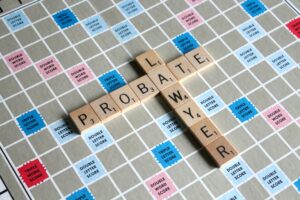
Scott Matison named to 2025 Pennsylvania Super Lawyers list
We’re honored to announce the selection of Scott Matison to the 2025 Pennsylvania Super Lawyers list! This exclusive list recognizes the top 5% of attorneys in Pennsylvania.
Ducimus perferendis, tempore. Incidunt. Minim hendrerit provident condimentum diam? Itaque, sequi sunt repellat praesentium ipsum eros scelerisque iaculis! Recusandae recusandae etiam.
in Pennsylvania and New Jersey
In both Pennsylvania and New Jersey, a divorce will only be granted if at least one of the legal grounds exist. In almost all instances, a party will file for divorce based upon a “no-fault” ground. A no-fault divorce means that the parties have been separated for the minimum period of time or that there are irreconcilable differences that the marriage can no longer be sustained. While not entirely common nowadays, a person can request a divorce based upon a “fault” ground. Fault grounds include, adultery, desertion, physical abuse, substance abuse, and imprisonment. In both Pennsylvania and New Jersey, fault is not taken into consideration when dividing the marital assets, which is why it is not often raised.
A divorce will only be granted once there is a resolution on dividing the martial assets and debts, which is known as Equitable Distribution. The marital assets and debts are not automatically divided equally. There are a number of factors to consider when arriving at a fair (“equitable”) division of the estate. The goal is to arrive at that division through a settlement agreement. Most cases are able to resolved by a final settlement agreement. However, in the event that does not happen, the Court will hold a Trial and determine the division. The majority of time on your case will be spent on Equitable Distribution. It is therefore crucial to have an experienced family law attorney to ensure your rights to the estate are protected.
As part of the divorce process, the lower earning spouse could be entitled to alimony, which is spousal support paid after the marriage. In both Pennsylvania and New Jersey, alimony is determined based upon a number of factors including the length of the marriage, and the ages, health, and financial circumstances of the parties. A needs-based analysis is applied to see whether the lower earning spouse needs additional support after the divorce in order to maintain their reasonable living expenses. For example, if the spouse’s monthly expenses total $5,000 per month and they only earn $3,000 per month, the other spouse could be required to contribute toward the $2,000 per month shortfall ($5,000 – $3,000).
The attorneys at Console Matison LLP have extensive experience in both Pennsylvania and New Jersey in handling cases with a variety of financial circumstances. Our goal is to help clients navigate through this difficult time and to get them through the divorce process in an efficient and cost-effective manner.

We’re honored to announce the selection of Scott Matison to the 2025 Pennsylvania Super Lawyers list! This exclusive list recognizes the top 5% of attorneys in Pennsylvania.

When someone dies in Pennsylvania, there are rules about how to sell property, pay off debt, pay taxes, and distribute proceeds to heirs. Here is everything you need to know about how to open and execute a probate case in Pennsylvania, with or without a will.

In a new precedent, the Pennsylvania Supreme Court widened the basis for establishing legal parentage in Pennsylvania custody cases. This is good news for LGBTQ+ parents without biology or marriage who are fighting for custody.